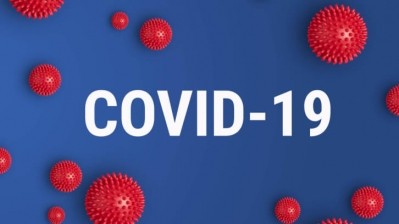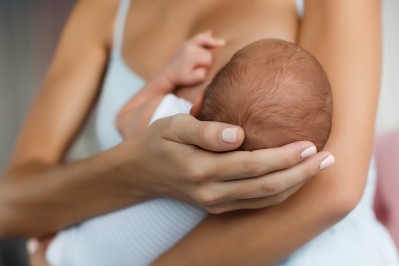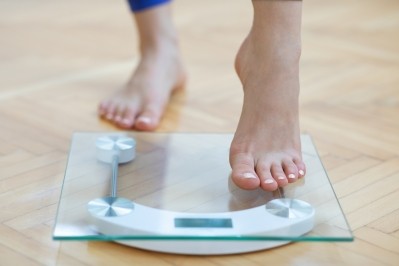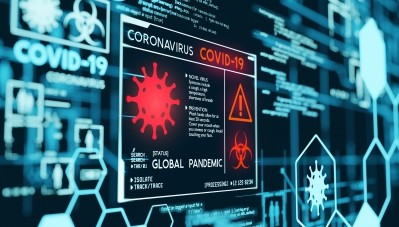Probiotic may boost immune response to COVID-19 vaccine in healthcare workers: RCT

Writing in Frontiers in Nutrition, the authors stated that subjects receiving Loigolactobacillus coryniformis K8 CECT 5711 (formerly known as Lactobacillus coryniformis) had significantly higher levels of the immune antibody Immunoglobulin G (IgG) compared to the control and 81 days after their first vaccine dose.
The probiotic also reduced vaccine side effects, particularly relating to arm pain, reported scientists from Hospital Universitario San Cecilio, the University of Granada, Hospital Virgen de las Nieves, and Biosearch Life (a Kerry Company).
The authors said the therapy a promising “natural and safe alternative for improving vaccination effectiveness, particularly in critical groups”, such as health care workers (HCWs).
Commenting on the study’s findings, a spokesperson for Biosearch Life/ Kerry told NutraIngredients: “This study helps to further support the potential immunomodulating properties of our K8 probiotic and further supports that it is safe and well tolerated.
“While probiotics and dietary supplements are unable to prevent, cure or treat any sort of disease or illness, supporting the immune system is still a priority for consumers across the globe.”
Improved prognosis
HCWs are a high-risk group for COVID-19 infection and vaccinations have been key in managing cases. Nevertheless, a significant proportion of recipients suffer from severe not life-threatening symptoms following the first dose, resulting in time off work in around 28% of cases that exacerbate economic pressures.
In addition, previous studies demonstrate the limited protective duration of vaccines, which diminishes considerably over time. This includes a Swedish investigation that found vaccine efficacy wavered in more than 1.3 million individuals six months after the final dose.
“The mitigation of the side effects after the first dose of the vaccine reported in the group that took L. coryniformis K8 may have repercussions both for the economy and in the quality of life of the vaccinated subjects,” explained the authors.
Further evidence suggests an association between IgG levels and protection against SARS-CoV-2 in different populations. For example, the same research team recently established the utility of the probiotic to boost and extend immune responses in elderly people following COVID-19 vaccination and other clinical trials have documented the immunomodulatory activity of L. coryniformis K8.
The study adds to previous findings with this strain, reported earlier this year in the journal Nutrients, which indicated that three months of supplementation with three billion colony forming units (CFUs) of L. coryniformis K8 CECT 5711 per day resulted in enhanced immune response in elderly people previously infected with the SAR-CoV-2 virus.
Study protocol
A group of 250 frontline HCWs aged 20 years and over, were randomly allocated to the L. coryniformis K8 group or placebo for a period of two months to examine the incidence and severity of COVID-19. Vaccine immune responses and side effects were also analysed.
PCR or antigen tests were used to determine infection incidence, which were low overall with few significant differences between groups.
Subjects received either the Comirnaty (BioNTech-Pfizer) or Spikevax (Moderna) mRNA- vaccine. Of these, 12.5% had received all their vaccines pre-study, 33.7% had received their first dose, and 51.6% had not started vaccine treatment.
Serum levels of specific IgG antibodies in volunteers vaccinated during the intervention were analysed at the study end.
Clinical implications
The impact L. coryniformis K8 on immune responses after vaccination revealed significantly lower levels of specific IgG in subjects “vaccinated for the longest time”, although positive short-term immune responses were observed in vaccinated subjects, compared with the placebo.
“This finding is in line with the results obtained in our previous study performed with vaccinated nursing home residents,” said the authors.
The sub-set of participants diagnosed with the infection and administered the probiotic registered high IgG levels which “may have important clinical implications”, but the mechanisms involved need to be elucidated, they assert.
Very few cases of COVID-19 were detected in participants, as such the benefits of the probiotic on infection incidence and severity could not be evaluated.
Conclusion
Study limitations include the low incidence of COVID-19, the relatively small sample size of the vaccinated subgroup and the homogenous subject profile (healthy Caucasian HCWs).
The researchers conclude that while results support the ability of L. coryniformis K8 to promote immunological responses, further studies should be performed that include more diverse population groups in order to analysis and determine the general response.
Source: Frontiers in Nutrition
Published online, August 3, 2022: doi: https://doi.org/10.3389/fnut.2022.962566
“Evaluation of the effect of Loigolactobacillus coryniformis K8 CECT 5711 consumption health care workers exposed to COVID-19”
Authors: R. Rodriguez-Blanque et al.
















